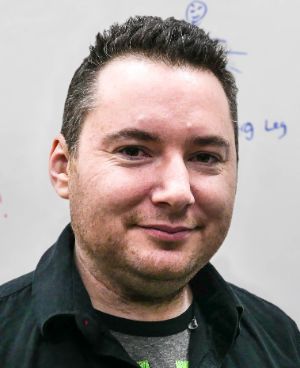The P-Cubed project at Michigan State University is an introductory mechanics classroom that combines the curriculum design approaches of problem-based learning with the modeling curriculum, all of which is guided by the communities of practice framework.
Curriculum design via the communities of practice framework places a focus on integrating the authentic experiences and practices of the subject or subjects from which the community of students develops.
For both engineering and physics, an essential authentic practice of both communities is the use of computation and in particular, in physics, the use of computation to model physics phenomenon.
Biography
Paul Irving, Ph.D., is an assistant professor of Physics in the Department of Physics and Astronomy at Michigan State University.
Paul is a curriculum designer and physics-education researcher. As a curriculum designer, Paul’s work has focused on developing practice-based learning environments for introductory physics students.
As a researcher, Paul has split his time examining physics identity development, the impact of integrating computation into physics curriculums at the undergraduate and high school level, and curriculum development impact studies.
